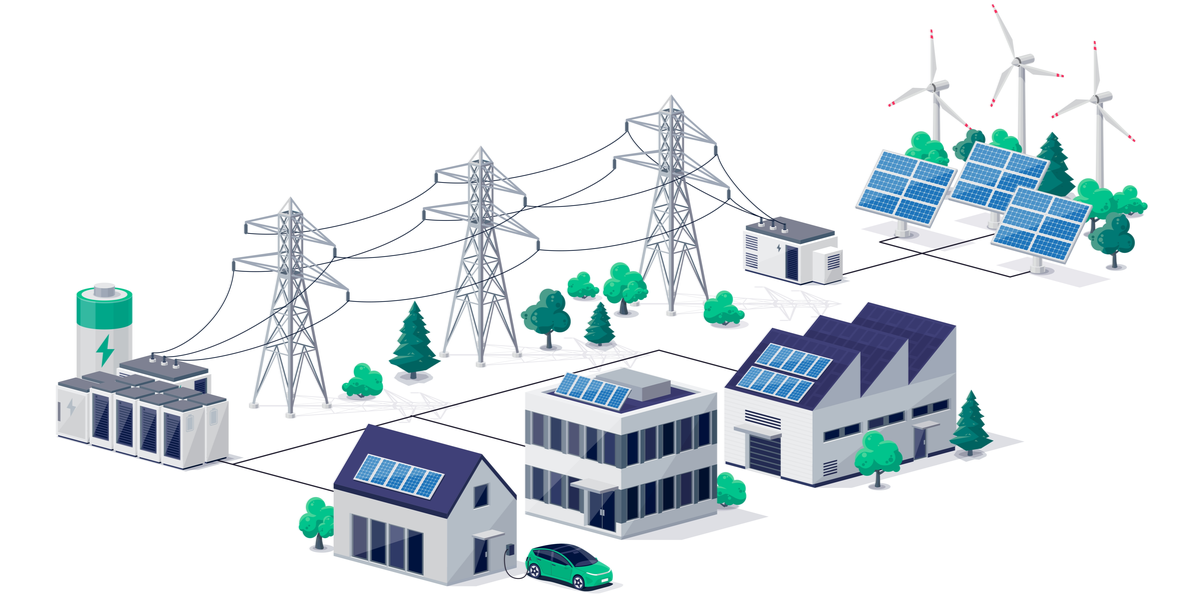Upton’s Pillars Put Energy Efficiency on Top
Let's Save Energy
Alliance to Save Energy's Blog
Upton’s Pillars Put Energy Efficiency on Top

Energy efficiency has served for nearly four decades and remains today as America’s cheapest, cleanest and most abundant resource.
It’s no wonder House Energy and Commerce Committee Chairman Fred Upton (R-MI) capitalized on the abundance of energy efficiency opportunities in his energy plan. Released last week, the plan consists of five pillars that address current energy issues while also providing a foundation for future energy policy.
Collectively entitled the “Architecture of Abundance,” we are pleased to see energy efficiency included as one of the principle elements in the Congressman’s new blueprint for energy policy in the U. S.
Breaking Down the Five
- The first of Chairman Upton’s pillars calls for a modernization of the country’s energy distribution network and for streamlining the approval process for new energy infrastructure.
Updating outdated systems has a multiplicity of opportunities to advance energy efficiency through upgrades and/or replacement of generation, transmission and distribution equipment with more efficient products. Also, increased use of so-called “smart grid” technologies can lead to large gains in productivity by targeting demand-side management and providing consumers with detailed use information.
The Alliance’s Energy 2030 recommendations to double energy productivity by the year 2030 that fall under the strategy of “Modernize" can help Congressman Upton achieve his stated goals for improving the country’s energy distribution network.
- The second pillar focuses on maintaining a diverse collection of energy generation sources.
There are many advantages for having a diversified energy generation base, and it’s important to note that all energy generation sources can become more competitive in the market by utilizing high efficiency technology.
- The third pillar aims to produce a manufacturing renaissance by giving companies the confidence they need to make long-term investments through improvements in transparency regarding changes in the regulatory environment.
Updating and/or improving regulations opens the door for making sure that energy efficiency is included as a goal in the process.
There are many issues that can make long-term investments difficult. One of these issues is that current depreciation schedules do not accurately reflect the average lifetimes of equipment such as heating and cooling technologies and HVAC systems. Congress could adjust these schedules to encourage the modernization of capital stock because new equipment, buildings, and vehicles tend to be more energy efficient than old stock.
The Alliance’s Energy 2030 recommendations that fall under the strategy of “Invest” include important legislative and regulatory tools that Congressman Upton can employ to reach these goals.
- The fourth pillar emphasizes the importance of energy efficiency and innovation as a proven method of saving money and resources without sacrificing productivity.
Energy efficiency doesn’t just ensure no loss of productivity, energy efficiency is the key to improving our Nation’s productivity — and quickly!
The Alliance’s Energy 2030 plan seeks to double U.S. energy productivity by 2030, and consists of a set of national policies that establish a roadmap for achieving an innovative, energy-efficient future by driving the deployment of energy efficiency in all sectors of the U.S. economy. Independent analysis has shown that achieving this goal would help Americans save $327 billion in avoided energy costs, create 1.3 million domestic jobs and reduce energy imports by over $100 billion.
- The final pillar identifies that the United States, as a major producer of energy resources, should export its excess resources to allied nations as an alternative to having those nations import resources from unstable regions of the world.
The U.S. wastes more than ½ of the energy consumed by our economy every year. Becoming more energy efficient will allow us to continue to grow GDP without growing our energy appetite which provides flexibility — and allows for considered plans — in the use of our domestic energy supplies.
The Alliance also encourages other countries to utilize energy efficiency measures that can help weaken dependence on foreign energy sources.
Architecture of Abundance Shares Goals & Strategies of Energy 2030 Plan
Energy 2030 deploys three overarching strategies similar to those found in Upton’s “Architecture of Abundance”:
- Unleash investment in energy productivity throughout the economy;
- Modernize regulations and infrastructure to improve energy productivity; and,
- Educate and engage consumers, workers, business executives, and government leaders on ways to drive energy productivity gains.
We look forward to working with Chairman Upton and all the members of the House Energy and Commerce Committee to bring his energy efficiency goals into fruition and to double the nation’s energy productivity for the benefit of all Americans.
STAY EMPOWERED
Help the Alliance advocate for policies to use energy more efficiently – supporting job creation, reduced emissions, and lower costs. Contact your member of Congress.
Energy efficiency is smart, nonpartisan, and practical. So are we. Our strength comes from an unparalleled group of Alliance Associates working collaboratively under the Alliance umbrella to pave the way for energy efficiency gains.
The power of efficiency is in your hands. Supporting the Alliance means supporting a vision for using energy more productively to achieve economic growth, a cleaner environment, and greater energy security, affordability, and reliability.



